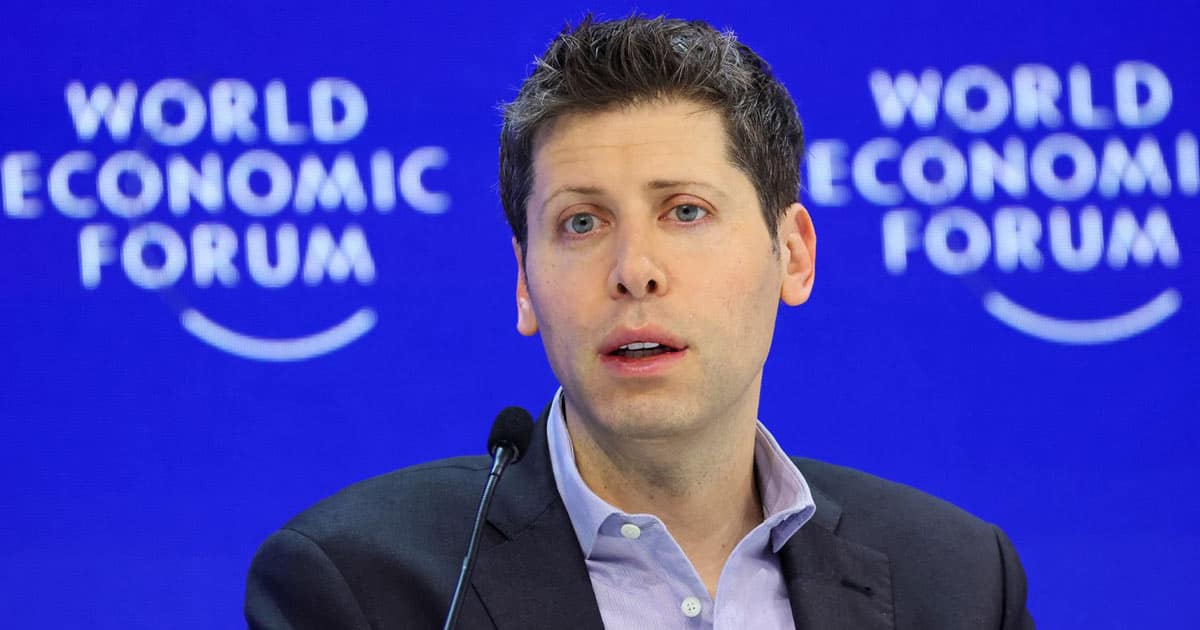OpenAI CEO Sam Altman is officially launching his digital ID and cryptocurrency project, Worldcoin, in the United States.
Worldcoin uses eye-scanning technology to confirm a person’s identity in a system called World ID.
World ID is a digital ID that uses biometric verification to confirm payments and prove a person’s identity.
Altman is hoping that Worldcoin will create a global identity and digital cash payment system.
Worldcoin pitches its system as “the world’s largest identity and financial public network.”
To encourage users to sign up and become verified, the company is offering people free Worldcoin tokens in exchange for iris scans.
The initiative plans to deploy thousands of its futuristic “orbs,” as Slay News has previously reported.
The orbs are basketball-sized biometric devices that verify a person’s identity by scanning their eyes.
Worldcoin is rolling out the orbs across cities nationwide, aiming to reach over 180 million Americans by year-end.
The first wave will hit six tech-heavy cities, including San Francisco, Miami, and Austin.
The company is offering users access to the World app, a WLD token airdrop, and new tools such as crypto loans and a Visa debit card linked to their balances.
There are even plans to integrate the identity system into dating apps.
Popular dating app Tinder is testing age verification via World ID in Japan.
Behind the tech is a deeper concern: how to tell humans apart from machines in an AI-dominated internet.
Altman says the project began as an attempt to solve that very problem, long before OpenAI.
Now, with regulatory tailwinds and growing adoption, the team is building a Texas-based facility to manufacture orbs and expand into more cities like Las Vegas and Seattle.
World’s co-founder and CEO Alex Blania says the goal is ubiquity.
“You’ll be able to verify yourself just about anywhere — from gas stations to corner stores — in minutes,” Blania insists.
The idea is to distinguish real humans from bots in an increasingly AI-dominated digital world—something Altman sees as crucial in the age of AI-generated content and deepfakes.
The company said more than 4.5 million people globally have already signed up for the program, and it’s expanding quickly amid growing curiosity and criticism.
Supporters argue that Worldcoin could democratize access to global financial systems and offer a robust solution to digital identity verification.
Critics, however, have raised serious concerns about privacy, data security, and biometric surveillance, particularly in countries with weak regulatory oversight.
Despite these concerns, Worldcoin insists that its iris data is converted into a unique code and deleted immediately, ensuring user privacy.
Altman has maintained that the project is distinct from OpenAI and is operated by Tools for Humanity, a separate company he co-founded.
He sees Worldcoin as a way to eventually support universal basic income and help humanity adapt to the economic shifts brought on by artificial intelligence.
The U.S. launch is likely to spark further debate about biometric data use and the ethics of incentivizing people to share sensitive information in exchange for cryptocurrency.
Nonetheless, the project’s expansion suggests growing momentum behind Altman’s vision of a verified, equitable digital future.
As Slay News reported in 2023 amid the initial buzz among globalists about Worldcoin, the company’s CEO, Alex Blania, gloated that a global digital ID system would be ushered in for citizens around the world, whether they “like it or not.”
“Something like World ID will eventually exist, meaning that you will need to verify [you are human] on the Internet, whether you like it or not,” Blania said.
Blania argues that the “progress” in linking digital cash to a biometric ID is due to the recent emergence of “AI” technology.
And he isn’t predicting that global ID and digital cash are the technology of the distant future.
Blania asserts that the technology is being rolled out now.
READ MORE – Bill Gates Pushes WEF-Backed Global Digital Cash & ID

Our comment section is restricted to members of the Slay News community only.
To join, create a free account HERE.
If you are already a member, log in HERE.